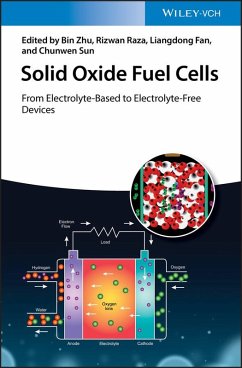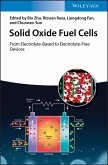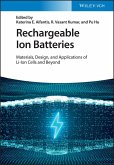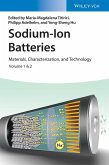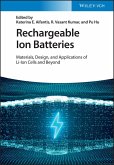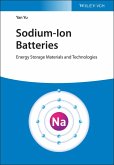Presents innovative approaches towards affordable, highly efficient, and reliable sustainable energy systems
Written by leading experts on the subject, this book provides not only a basic introduction and understanding of conventional fuel cell principle, but also an updated view of the most recent developments in this field. It focuses on the new energy conversion technologies based on both electrolyte and electrolyte-free fuel cells?from advanced novel ceria-based composite electrolyte low temperature solid oxide fuel cells to non-electrolyte fuel cells as advanced fuel-to-electricity conversion technology.
Solid Oxide Fuel Cells: From Electrolyte-Based to Electrolyte-Free Devices is divided into three parts. Part I covers the latest developments of anode, electrolyte, and cathode materials as well as the SOFC technologies. Part II discusses the non-electrolyte or semiconductor-based membrane fuel cells. Part III focuses on engineering efforts on materials, technology, devices and stack developments, and looks at various applications and new opportunities of SOFC using both the electrolyte and non-electrolyte principles, including integrated fuel cell systems with electrolysis, solar energy, and more.
-Offers knowledge on how to realize highly efficient fuel cells with novel device structures
-Shows the opportunity to transform the future fuel cell markets and the possibility to commercialize fuel cells in an extended range of applications
-Presents a unique collection of contributions on the development of solid oxide fuel cells from electrolyte based to non-electrolyte-based technology
-Provides a more comprehensive understanding of the advances in fuel cells and bridges the knowledge from traditional SOFC to the new concept
-Allows readers to track the development from the conventional SOFC to the non-electrolyte or single-component fuel cell
Solid Oxide Fuel Cells: From Electrolyte-Based to Electrolyte-Free Devices will serve as an important reference work to students, scientists, engineers, researchers, and technology developers in the fuel cell field.
Hinweis: Dieser Artikel kann nur an eine deutsche Lieferadresse ausgeliefert werden.
Written by leading experts on the subject, this book provides not only a basic introduction and understanding of conventional fuel cell principle, but also an updated view of the most recent developments in this field. It focuses on the new energy conversion technologies based on both electrolyte and electrolyte-free fuel cells?from advanced novel ceria-based composite electrolyte low temperature solid oxide fuel cells to non-electrolyte fuel cells as advanced fuel-to-electricity conversion technology.
Solid Oxide Fuel Cells: From Electrolyte-Based to Electrolyte-Free Devices is divided into three parts. Part I covers the latest developments of anode, electrolyte, and cathode materials as well as the SOFC technologies. Part II discusses the non-electrolyte or semiconductor-based membrane fuel cells. Part III focuses on engineering efforts on materials, technology, devices and stack developments, and looks at various applications and new opportunities of SOFC using both the electrolyte and non-electrolyte principles, including integrated fuel cell systems with electrolysis, solar energy, and more.
-Offers knowledge on how to realize highly efficient fuel cells with novel device structures
-Shows the opportunity to transform the future fuel cell markets and the possibility to commercialize fuel cells in an extended range of applications
-Presents a unique collection of contributions on the development of solid oxide fuel cells from electrolyte based to non-electrolyte-based technology
-Provides a more comprehensive understanding of the advances in fuel cells and bridges the knowledge from traditional SOFC to the new concept
-Allows readers to track the development from the conventional SOFC to the non-electrolyte or single-component fuel cell
Solid Oxide Fuel Cells: From Electrolyte-Based to Electrolyte-Free Devices will serve as an important reference work to students, scientists, engineers, researchers, and technology developers in the fuel cell field.
Dieser Download kann aus rechtlichen Gründen nur mit Rechnungsadresse in D ausgeliefert werden.
Hinweis: Dieser Artikel kann nur an eine deutsche Lieferadresse ausgeliefert werden.

